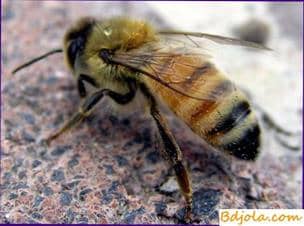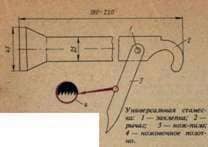
Just recently – just two years ago – I first got a beehive from the beehive … I remember how many difficulties there were in the first time. And at the deadlock I did not ask “what to do?”, But “how to do?”. In all the manuals, the authors disclose the technological side of beekeeping, forgetting about the specific difficulties with which they encountered, first opening the nest of bees. At me it is still fresh in memory, and I can share the experience with beginning beekeepers.
I believe that the most rational for a beginner beekeeper is to acquire swarms. They are very efficient, they build a wax well. An early swarm with a mass of 2 kg is quite capable of not only rebuilding a nest during the season, gathering food for oneself for the winter, but also providing marketable honey. And finally, before the appearance of the printed brood, it is easy to carry out antivariate treatment in order to reduce the rancidity to 1% and lower.
Agree with the beekeeper you know so that he sells you two swarms, or try to catch a stray, hanging in the forest in small trees for eight to ten frames of the hive-trap. The famous American beekeeper Ruth began his career without a penny in his pocket, accidentally catching a swarm that had flown away from the owner.
Not having a great habit of working with bees, it is better to use natural swarming to multiply families at first. With artificial methods, difficulties arise with the introduction of queens, the flow of bees to the old nest, and so on.
Let’s say that the bees are already purchased and stand in the prepared areas in the garden.
All benefits are recommended to completely disassemble the nests only four to five times per season.
Indeed, it is enough for an experienced beekeeper to inspect two or three frames in order to understand the state of the family and perform the necessary operations. In order for the novice beekeeper to quickly determine the state of the family (whether bees are not close, whether they prepare for swarming, etc.), he must constantly monitor their development.
I myself remember how I wanted to look into the nest. Here, the frame with the honeycomb, set last time, was already rebuilt and seeding appeared; and where there were white larvae a week ago, the cells are already sealed with lids; here is a fresh nectar; and the uterus continues to work on the removed frame.
It was not a simple contemplation, but a comprehension of the life and development of the bee family. But each time, before opening the roof of the hive, I fought myself with one hand, I wanted to see what happened to my family in a week, on the other – I realized that every examination violates the rhythm of her work.
Now I am convinced: it is better to study bees often in the first year of studying bees, in order to avoid this for the second time. You can not rudely intervene in the life of the family – rearrange the framework without an urgent need, cut pieces of honeycomb, eliminate bridges and passages. Bees know best where and what it is more convenient for them to place, the purpose of the beekeeper is not to command bees, but to help them work.
At the first examination, the beginner has many difficulties. It is rather difficult to move a strongly-pre-framed frame without a jerk. With a snatch, the bees begin to worry greatly, make noise, rise into the air, which leads the beginning beekeeper into confusion.
 I use a chisel of my own design, which allows not only to smoothly tear off the frames, but also to lift them without shifting sideways, which is very convenient with a fully filled hive when there is no free space. I found a description of such a chisel in one of the old magazines.
I use a chisel of my own design, which allows not only to smoothly tear off the frames, but also to lift them without shifting sideways, which is very convenient with a fully filled hive when there is no free space. I found a description of such a chisel in one of the old magazines.
It is very convenient. If you attach the blade to the handle from the hacksaw on the metal (without grinding its working surface), you will get a universal tool – a chisel, a knife and a mini-saw.
Finally, they safely removed the frame from the beehive. And then a bee sat down on his arm. At me for the first time it has caused a panic: suddenly will sting?! The attempt to shake her had led to serious consequences – I almost dropped the frame, and her excited sisters immediately attacked her hand. Of course, in any book there is advice to behave calmly, not to make sudden movements, but how to overcome the first fear of a bee on his hand? I believe that gloves should not be used during examinations – they interfere with the work, the dexterity of the fingers is lost, and there may also be a fear of approaching bees without them.
However, to have a pair of gloves on the apiary does not hurt, since there are times when angry bees sting everyone approaching the hive, but it is necessary to work. I use not cotton, but gloves made of fine rubber, they are impenetrable for a bee sting. Only after work they should be lightly sprinkled with flour, so that they do not stick together during storage.
And what if the gloves are not there, and the bees are not allowed to work? In this case, a conventional clay solution may be useful. Hands lubricated by it, are reliably protected from the stinger until the solution dries, well, and “update” such “gloves” – a second.
The issue of working clothes should also be solved. Do not conduct the same inspection in everyday – bees can strongly irritate foreign odors. It is better if the working clothes are not a robe, but a special costume.
At first, a beginner should better stick to traditional methods of care for bees, do not put experiments.
After all, in literature you can often find conflicting opinions, so do not take all the advice on faith. Still it is necessary to remember: that is suitable in one conditions, can harm in others. Beginner for the experiments can be very expensive to pay – lose everything that it has. In the normal state of the family, it is better not to think up difficulties for oneself.
It should never be for mercenary reasons to replace a honey suitable for wintering with sugar. Left in the fall, honey will pay off next year a hundredfold. Bees will not eat too much, they are very economical. It is better to remain without honey in the first year than in the spring without bees. In addition, supplementation with syrup can serve as an impetus to the development of theft. Benign natural honey is better than syrup in all respects.
Everyone is interested in knowing the economic efficiency of their apiary and the cost of their products. From the very beginning I have a notebook, in which I note all the expenses and incomes. I can say on the basis of my own records – the apiary can recoup itself in two years. And most importantly, bees will make your life more interesting and rich, add health – and this can not be measured by any money.
I advise everyone who still doubts: get bees, and your life will be filled with new content.
Уход за пчелами в лежаках. Пчела строение глаз.
Beer lover's section